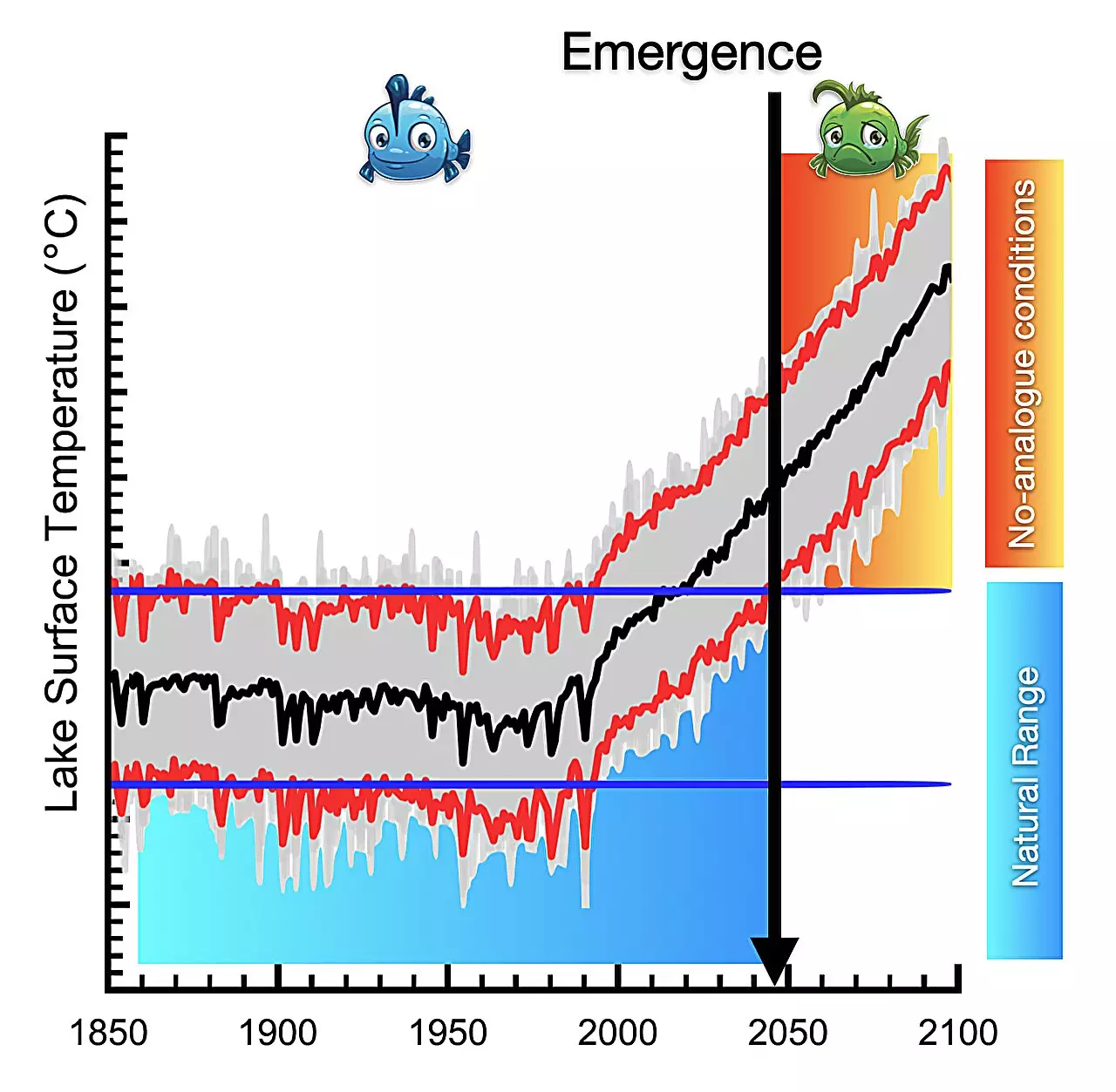Lakes are essential ecosystems, acting as hotspots of biodiversity and critical components of the Earth’s climate system. Yet, despite their importance, a dire situation looms as rising global temperatures threaten these vital bodies of water. A groundbreaking study recently published in *Nature Geoscience* warns that the world’s lakes are on the brink of experiencing unprecedented temperature changes that could radically alter their ecological landscapes. This research highlights a need for urgent action and awareness about the fragility of these ecosystems, which not only support myriad species but also play a pivotal role in carbon cycling and climate regulation.
A Revolutionary Study Methodology
The study leveraged the capabilities of advanced climate modeling, utilizing the Community Earth System Model (CESM) version 2 to simulate lake temperature data from 1850 to the projected conditions of 2100. What sets this study apart is its use of an ensemble of 100 simulations instead of a singular forecast, which lends a more nuanced understanding of natural variability. This approach allows researchers to tease apart the complexities of climate influences, distinguishing phenomena caused by human activity from those that occur naturally. The sophistication of this modeling, conducted on one of the fastest computers in South Korea, underscores the growing intersection of technology and environmental science and its potential in forecasting ecological crises.
No-Analog Conditions: A Disturbing Forecast
Dr. Lei Huang, the lead author, warns that by the century’s end, lakes worldwide will likely reach what are termed “no-analog conditions.” This alarming prediction means conditions will exceed anything these ecosystems have previously experienced. Tropical lakes, known for their rich biodiversity, are projected to face these shifts first, with the threshold being a mere 2.4°C rise above pre-industrial levels. Such rapid changes raise critical questions about the adaptability of lake-dwelling organisms, many of which have limited migratory abilities compared to their terrestrial or marine counterparts. It’s a stark reminder of how vulnerable these systems are to anthropogenic climate change.
The Impact of Depth and Stratification
Interestingly, depth plays a crucial role in how warming impacts lake systems. In regions with more stable thermal structures, like high-latitude lakes, the heat may not penetrate deeply, delaying the onset of these no-analog climates. This stratification can provide a temporary refuge for some aquatic species, but it does not mitigate the broader pressures of warming. In contrast, tropical lakes will experience rapid warming from the surface, affecting not only biodiversity but also the essential services lakes provide to surrounding communities.
Dr. Iestyn Woolway, another key researcher in the study, emphasizes that the downward transmission of warming signals—especially during mixing events—will lead to immediate consequences for subsurface habitats. This reveals a complex interplay where surface conditions directly impact the health of deeper lake environments, making it imperative to consider the entire lake system when assessing ecological risk.
The Wider Implications of Ecological Transformation
The ramifications of reaching no-analog conditions could be catastrophic. Prof. Axel Timmermann highlights that these changes will disrupt entire ecosystems, fundamentally altering species interactions and nutrient cycling. Given the slower rates of adaptation and migration in lake species compared to other ecosystems, many organisms may find themselves unable to cope with the speed of changes brought about by climate warming. This raises ethical and ecological questions about conservation efforts and challenges facing biodiversity as the planet continues to warm.
Understanding the projected timelines and impacts of these changes is vital in crafting effective climate mitigation strategies and informing conservation efforts. As the study suggests, proactive measures are necessary to safeguard these increasingly vulnerable ecosystems. Failure to act could result in irreversible changes that not only affect the lakes themselves but also have rippling effects on global biodiversity and human livelihoods that rely on these ecosystems. The clock is ticking, and without immediate action, we could see future generations inheriting lakes that are unrecognizable and unable to sustain life as we know it.


Leave a Reply